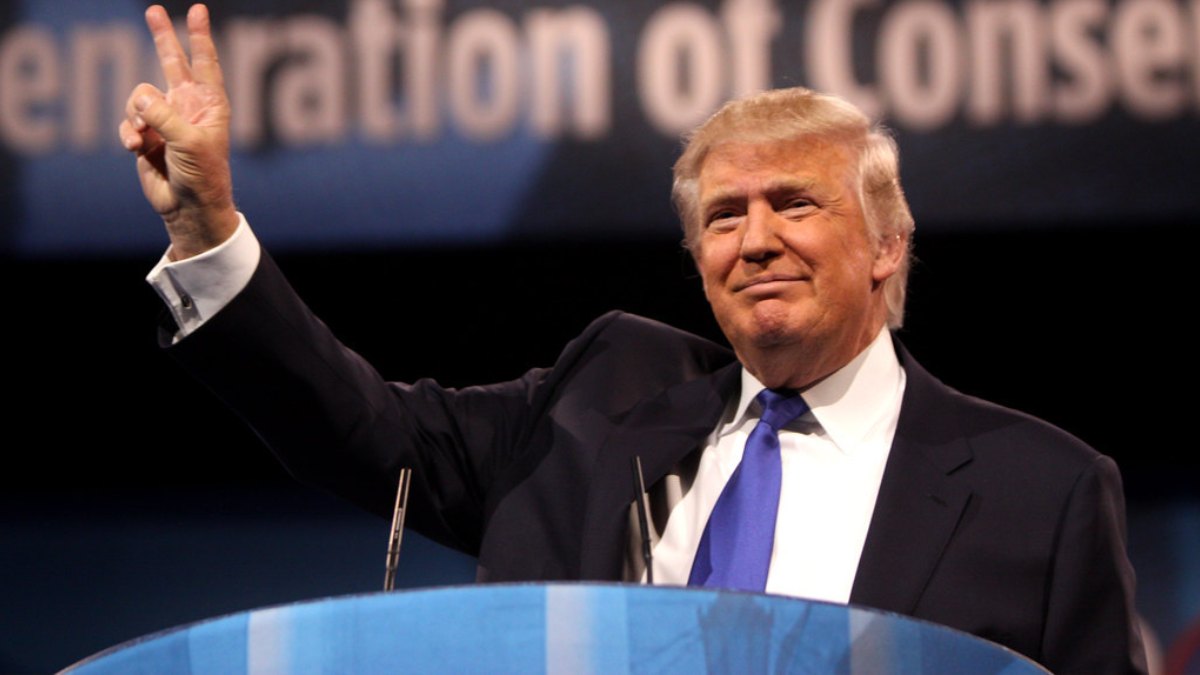It’s the 1980s in New York City, and a young, brash real estate developer named Donald Trump is making waves. Known for his trademark confidence and flair, he’s splashed his name on hotels, casinos, and skyscrapers, each more extravagant than the last. Trump is on the cover of magazines, his face synonymous with wealth, luxury, and ambition. Fast-forward a few decades, and Trump is no longer just a real estate mogul; he’s a reality TV star, a household name, and ultimately, the 45th President of the United States. But while his political career put him in the global spotlight, his wealth has always been a point of fascination and controversy. How much is Donald Trump worth? And how did his net worth fluctuate through his business ventures, media presence, and a stint in the White House?
In this article, we’ll explore Donald Trump net worth in depth, tracing the evolution of his wealth, examining his business successes and failures, and analyzing how his time in politics affected his finances. Using credible sources and financial data, we’ll break down the assets, liabilities, and controversies that make Trump’s net worth one of the most debated topics in finance.
Who is Donald Trump?
Donald Trump was born on June 14, 1946, into a wealthy family in Queens, New York. His father, Fred Trump, was a successful real estate developer specializing in middle-income housing in New York’s outer boroughs. Donald joined the family business in the 1970s, bringing with him a vision to move into high-end real estate in Manhattan. Over the next few decades, Trump built a business empire centred on real estate development, with his properties including luxury hotels, office buildings, and casinos.
Trump became a household name through his business ventures and stint as the host of the reality TV show The Apprentice, where he reinforced his image as a tough-talking businessman. His high-profile lifestyle and willingness to court controversy kept him constantly in the media spotlight. However, in 2016, Trump’s career took an unexpected turn when he ran for—and won—the presidency of the United States. Since then, his net worth and finances have been scrutinized more closely than ever, especially amid questions about how his presidency affected his wealth.
What is Donald Trump Net Worth?
Determining Donald Trump net worth has been notoriously difficult due to his private nature in his finances and his tendency to inflate estimates. According to Forbes, as of 2023, Trump’s net worth is estimated to be approximately $2.6 billion. However, it’s worth noting that this figure has fluctuated widely over the years and differs depending on the source. For instance, Bloomberg and Celebrity Net Worth provide slightly different estimates, highlighting the challenges in valuing Trump’s assets.
To put this in perspective, Trump was previously estimated to have a net worth of over $4.5 billion before his presidency in 2015. This drop in net worth over the years can be attributed to various factors, including the impact of the COVID-19 pandemic on his real estate holdings, legal costs, and the political and financial fallout of his presidency.
The Components of Trump’s Wealth
Trump’s net worth primarily stems from his real estate holdings, branding ventures, and business investments. Here’s a breakdown of his main assets:
- Real Estate Holdings: Trump’s biggest assets are his real estate properties, many of which are located in Manhattan and valued at billions of dollars. Trump Tower, located on Fifth Avenue in New York City, remains one of his most valuable properties, estimated at $400 million (Source: Forbes). Additionally, he owns significant stakes in other properties, such as 40 Wall Street, a 71-story skyscraper in Manhattan, and several high-end golf courses worldwide.
- Golf Courses and Resorts: Trump owns 16 golf courses across the U.S. and internationally, including Trump National Doral in Miami and courses in Scotland and Ireland. Forbes says his golf and resort properties are valued at approximately $740 million. However, these properties have been a double-edged sword; while they generate revenue, they also require high maintenance costs and have been impacted by the COVID-19 pandemic.
- Branding and Licensing Deals: Trump’s name has been valuable. Over the years, he has licensed the “Trump” brand to various businesses, including hotels, residential buildings, and products like bottled water and steaks. These branding deals were particularly lucrative in the 2000s, contributing millions of dollars annually to his wealth. In recent years, however, the value of the Trump brand has taken a hit, with some partners distancing themselves due to the controversies surrounding his presidency.
- Cash and Investments: Trump also holds a portfolio of cash and liquid investments, including stakes in various companies and investments in stocks and bonds. According to his most recent financial disclosures, he holds several million dollars in these investments. Exact numbers vary, but Forbes estimates Trump’s liquid assets at around $160 million.
- Mar-a-Lago: Trump’s famous private club in Palm Beach, Florida, is estimated to be worth around $325 million. Mar-a-Lago has become a central part of Trump’s post-presidential life as a residence and business asset, with club members paying high fees for access.
How Did Trump’s Presidency Affect His Net Worth?
Donald Trump’s presidency had a significant impact on his finances—both positively and negatively.
- Loss of Branding Deals: Before his presidency, Trump’s name was licensed widely, but as he became a more polarizing figure, some companies and real estate developers distanced themselves from the Trump brand. According to Forbes, Trump lost deals with companies like Macy’s, Serta, and other brands during his 2016 campaign, leading to a decline in his brand’s valuation.
- The decline in Real Estate Valuation: The COVID-19 pandemic hit the commercial real estate market hard, especially high-end properties in urban areas. Many of Trump’s office buildings and hotels saw a decline in occupancy rates and overall value during the pandemic, contributing to a significant drop in his net worth. For instance, the value of the Trump Tower and other properties in Manhattan reportedly dropped by as much as 25% from their pre-pandemic valuations (Source: Bloomberg).
- Increased Legal Costs: Trump’s legal battles, both during and after his presidency, have been extensive and costly. Trump has faced substantial legal fees between investigations into his businesses, lawsuits, and personal legal defences. While exact numbers are not disclosed, it’s estimated that these legal costs have reached millions of dollars annually, putting additional pressure on his finances.
- Revenue Boost from Political Influence: Paradoxically, Trump’s presidency also provided financial benefits. Mar-a-Lago and his other properties saw an influx of guests and members drawn by Trump’s political influence. For instance, initiation fees for Mar-a-Lago reportedly doubled after he became President, and some estimates suggest that the property brought in $25 million in annual revenue during his presidency (Source: The New York Times).
Controversies Surrounding Trump’s Wealth Claims
Trump’s net worth has been controversial for decades, with the former President often claiming to be worth much more than external estimates suggest. Trump has been known to inflate the value of his assets, as evidenced in the 2022 New York Attorney General’s investigation, which alleged that Trump and his organization overstated the value of his properties to secure loans and insurance benefits.
For example, Trump valued his Mar-a-Lago estate at $739 million in financial documents, which experts argued was far above its actual market value. Such discrepancies have led to legal scrutiny, with accusations that Trump’s financial statements are inconsistent and misleading (Source: New York Attorney General’s Office).
Current Financial Challenges and Future Prospects
As of 2023, Donald Trump faces a complex financial situation. His net worth, estimated at $2.6 billion, is substantial but far from the top of the billionaire rankings, especially in light of his substantial debts. According to Forbes, Trump has over $1 billion in loans, with significant portions coming due over the next few years. This debt load is one of his biggest financial challenges, as it puts pressure on his cash flow and could force him to sell some assets if he cannot refinance.
Additionally, Trump’s ongoing legal battles—including investigations into his business practices—pose a financial risk. Legal costs continue to mount, and potential penalties or settlements could further impact his wealth.
However, Trump remains a prominent figure, and his influence in politics and media provides revenue opportunities. He has hinted at further business ventures and could leverage his political base for fundraising or media projects.
Conclusion: The Enigma of Trump’s Wealth
Donald Trump net worth—estimated at $2.6 billion—reflects his successes and controversies. His wealth has fluctuated significantly over the years, influenced by real estate cycles, his brand’s changing value, and his political career. Trump has built a diversified but often volatile financial empire from high-profile properties to golf courses and branding deals.
While Trump may not be among the wealthiest billionaires, his wealth remains a public fascination and scrutiny topic. As he navigates his post-presidency years, Trump’s finances will likely continue to be a point of interest, reflecting the enduring intrigue—and controversy—surrounding his life and career.



